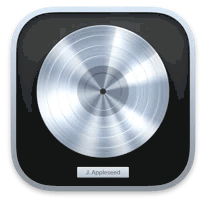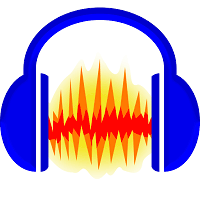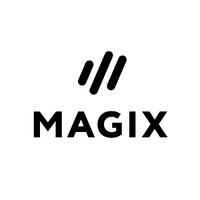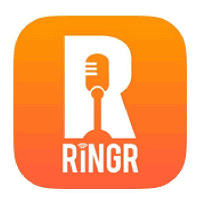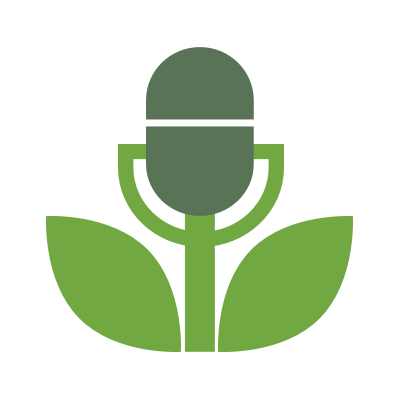Yes, most podcast software is accessible across various devices and platforms, making it convenient and user-friendly for both creators and listeners. Whether you use a laptop, smartphone, or tablet, you can download and access your favorite podcast software on a variety of operating systems, including iOS, Android, and Microsoft Windows. This enables effortless synchronization of your subscriptions, downloads, and progress across all devices, making it available for use on the move or at home.
List of Best Podcast Software
Hindenburg is a audio editing software designed for storytellers, journalists, and podcasters. Simplify your production process with its user-friendly interface and powerful tools. Enhance your audio content effortlessly and create exceptional result...Read More Hindenburg
Logic Pro Xs Logic Remote feature allows you to effortlessly connect your iOS device to your Mac, enabling you to control your performances and mixing with multi-touch convenience. With the ability to play software instruments directly from your iPad...Read More Logic Pro X
Studio One is a music production software that combines the best of traditional studio recording and modern beat-making techniques. With its user-friendly interface, anyone can easily turn their musical ideas into professional tracks. This powerful t...Read More Studio One
GarageBand is a music production software exclusively designed for MacBook users. With an expansive sound library featuring a wide range of instruments, vocals, guitar samples, and a diverse selection of session drummers and percussionists, GarageBan...Read More GarageBand
Audacity is a multi-platform audio editor and recorder designed for Windows, Mac, and Linux. It is a collaborative effort of volunteers, and offers user-friendly tools for editing, mixing, and recording audio. Its open-source nature makes it a budget...Read More Audacity
MAGIX Music Maker solution for effortlessly capturing your musical ideas. This versatile software allows you to connect your microphone, USB keyboard, drum pads, or guitar and start creating music in a snap. With Music Maker, you can easily sing, rap...Read More MAGIX Music Maker
Google Podcasts is a podcast app that streamlines the way you discover and listen to your favorite shows. Its user-friendly interface and personalized recommendations effortlessly cater to your preferences, making podcasting on-the-go a breeze. Say g...Read More Google Podcasts
Podhash is a marketing tool that offers a diverse range of podcasts and episodes to choose from. Our platform allows you to easily filter by category, language, and stats to discover your ideal podcasts without any hassle. With just a few clicks, you...Read More Podhash
Ringr solution for seamless remote conversations. Our innovative software, available on mobile and desktop, allows you to feel like youre in the same room with unparalleled audio clarity. Try Ringr Premium free for 7 days and effortlessly connect, re...Read More Ringr
Podcastle is a audio production software for podcasters and content creators. With its user-friendly interface and advanced AI features, Podcastle streamlines the recording and editing process, ensuring high-quality results for beginners and professi...Read More Podcastle
Riverside solution for all your content creation needs. Our all-in-one platform offers seamless recording, streaming, and editing capabilities. With advanced AI technology, even complex tasks become easy, allowing you to produce top-notch content eff...Read More Riverside
Descript is the software that revolutionizes audio and video editing with its intuitive interface. With advanced transcription features, easy multi-track editing, and screen recording capabilities, Descript is a tool for seamless workflow and flawles...Read More Descript
Anchor by Spotify is a Podcast Software designed for SMEs, startups, agencies, and enterprises. This all-in-one solution offers a user-friendly Dashboard, seamless API integration, effortless Audio Recording, dependable Hosting services, and hassle-f...Read More Anchor by Spotify
Buzzsprout, the go-to podcast hosting platform for over 120,000 podcasters. With its user-friendly interface, you can easily start, market, and generate revenue from your show. Benefit from detailed analytics, customizable websites, and top-notch sou...Read More Buzzsprout
Podbean is a podcasting platform that simplifies the podcasting journey for creators. Its user-friendly tools, detailed insights, and smooth integration with popular third-party apps help maximize audience growth and revenue potential. Whether youre...Read More Podbean
SquadCast.fm solution for remote recording for podcasters and content creators. Experience superior audio quality, easy team collaboration, and seamless integration for professional-grade recordings. Say goodbye to technical issues and hello to an in...Read More SquadCast.fm
WavePad is a audio editing software that revolutionizes the industry. Take charge of your audio recordings and flawlessly enhance them with our dynamic features. With compatibility for various formats and an impressive range of professional effects,...Read More WavePad
Learn More About Podcast Software
- What Is Podcast Software?
- What Are The Recent Trends In Podcast Software?
- Benefits Of Using Podcast Software
- Important Factors To Consider While Purchasing Podcast Software?
- What Are The Key Features To Look For In Podcast Software?
- Why Do Businesses Need Podcast Software?
- How Much Time Is Required To Implement Podcast Software?
- What Is The Level Of Customization Available In Podcast Software?
- Which Industries Can Benefit The Most From Podcast Software?
- Conclusion
What Is Podcast Software?
Podcast software is an essential tool for producing, editing, and publishing podcasts. Whether you are a new or seasoned podcaster, the correct software may significantly improve the quality and efficiency of your podcast production. Podcast software is primarily intended to assist you record, edit, and publish audio content in the form of podcasts. It has a variety of capabilities, including audio recording and editing tools, audio effects, podcast hosting and distribution, and statistics.
Some podcast software also includes advanced features such as multi-track editing, collaboration tools, and monetization possibilities to help you elevate your podcast to the next level. One of the primary advantages of using podcast software is the ability to record and edit audio content in a professional and polished manner. These tools let you reduce background noise, modify audio levels, and apply effects to make your podcast seem professional and interesting.
Additionally, podcast software allows you to easily add opening and outro music, transitions, and other components to improve the overall quality of your podcast. Another significant feature of podcast software is its hosting and distribution capabilities. These services give you the storage and bandwidth you need to host and broadcast your podcast episodes on popular podcast platforms like Apple Podcasts, Spotify, and Google Podcasts.
This not only expands your audience but also allows you to track your podcast's performance using analytics. When selecting podcast software, it is critical to evaluate your individual requirements and budget. Some software may have more advanced capabilities but charge a greater fee, whereas others may include all of the essential tools you require at a lower cost. It is also critical to check that the software you use is compatible with your computer and recording equipment.
What Are The Recent Trends In Podcast Software?
Podcasting, which was previously a niche sector, has grown in popularity in recent years. With the rise of true crime programs and celebrity-hosted shows, podcasts are becoming increasingly popular as a source of entertainment and information. As a result, the demand for high-quality podcast software has grown, resulting in a continuous evolution of industry trends and advances.
One of the most significant recent developments in podcast software is the incorporation of artificial intelligence (AI) technologies. AI-powered tools and features, such as speech recognition, natural language processing, and automated transcription, have significantly increased podcast production efficiency and accuracy. These developments have also made podcasting more accessible to people with limited resources and technological knowledge.
Another trend in podcast software is a focus on user-friendly and intuitive interfaces. As more people and businesses get into podcasting, software developers have recognized the need for user-friendly platforms. This offers simpler audio editing tools, drag-and-drop capability, and adjustable templates, allowing even novice users to make professional-quality podcasts.
Furthermore, live podcasting has grown in popularity in recent years, resulting in the creation of software expressly for this purpose. Live podcasting allows hosts and guests to communicate with their audiences in real time, resulting in a more engaging and dynamic experience. The proliferation of live streaming services, combined with a desire for more authentic and unfiltered content, has fostered this trend.
Additionally, the rise of remote employment and virtual events has influenced podcasting tendencies. Podcast software now supports collaborative editing and allows you to record interviews and conversations remotely. This has become an essential component of podcasting, allowing for smooth production and flexibility for both creators and guests.
Finally, the need for high-quality audio and production value has resulted in the incorporation of sophisticated sound editing and dissemination features into podcast software. These capabilities include noise reduction, equalization, and mastering tools, as well as the option to broadcast podcasts across several platforms with a single click.
Benefits Of Using Podcast Software
Podcasts have grown in popularity in recent years, with a rising number of individuals using them to access content. As a result, the demand for efficient and high-quality podcast software has increased.
If you're thinking about beginning a podcast or upgrading your current software, here are some of the biggest advantages of using podcast software:
1. Streamlined Recording And Editing Process: One of the most significant benefits of podcast software is its ability to simplify the recording and editing process. With the correct tools, you can effortlessly record, edit, and mix podcast episodes in one spot. This not only saves time, but it also results in a professional and polished finished product.
2. Simple File Management: Podcast software allows you to easily organize and save your audio recordings. This allows you to easily view, edit, and share your podcast episodes with team members or visitors.
3. Customization And Personalization: Another advantage of using podcast software is the option to tailor and personalize your episodes. Podcast software lets you to customize each episode by adding music and sound effects, improving audio quality, and generating intro/outro portions.
4. Various Platform Distribution: Most podcast software contains tools that allow you to distribute your episodes across various platforms, ensuring that your podcast receives the most reach and exposure possible. This allows you to easily share your podcast on popular platforms like iTunes, Spotify, and others.
5. Detailed Analytics: Podcast software provides detailed analytics, allowing you to gain vital insights into your audience's listening habits and participation. This information might help you make more educated content decisions and identify which episodes are popular with your audience.
6. Collaboration Tools: Many podcast software packages include collaboration tools, which make it easier to work with co-hosts, editors, and other team members. This allows for fluid communication and improved process, resulting in a more efficient and professional finished output.
Important Factors To Consider While Purchasing Podcast Software?
When it comes to selecting podcast software, there are several crucial elements to consider in order to make the best option for your specific requirements.
Here are the essential aspects to consider while assessing various options:
1. Features And Functionality: The first and most important consideration is the features and functionality provided by the podcast program. It should include all of the necessary tools for creating, editing, and publishing your episodes, as well as features that improve the overall listening experience for your audience.
2. User-Friendly Interface: The program should have an intuitive and user-friendly interface to facilitate navigation and workflow. This will save you time and hassle in the long run, allowing you to concentrate on producing high-quality content for your podcast.
3. Compatibility: Ensure that the podcast program is compatible with your computer's operating system and meets the necessary system requirements. Consider whether it is compatible with any other software or services you use, such as a website, hosting platform, or editing software.
4. Price: Podcast software can range from free to several hundred dollars, so assess your budget and the value you will derive from the options available. Compare prices and subscription plans to get the best option for your needs and budget.
5. Customer Help: Look for software that provides dependable and accessible customer help. This will be critical if you have any technical problems or require assistance with the software's capabilities.
6. Evaluations And Reputation: Read evaluations from fellow podcasters and industry experts to get a sense of the software's effectiveness and reputation. This can also assist you understand any potential concerns or restrictions that the corporation may not have stated.
7. Trial Or Demo Versions: Many podcast software companies provide a free trial or demo version, allowing you to try out the features and functionality before making a purchase.This is an excellent approach to assess if the program meets your requirements and preferences.
By taking these essential elements into account when making your purchasing decision, you may choose the best podcast software for your needs, improve your podcasting experience, and assist you in creating content that engages and captivates your audience.
What Are The Key Features To Look For In Podcast Software?
When searching for podcast software, there are a few crucial things to consider to ensure that you get the best option for your purposes. These tools will not only make your podcasting experience easier and more efficient, but will also assist you in creating high-quality content that will captivate your audience.
1. Recording And Editing Capabilities: One of the most crucial things to look for in podcast software is the ability to record and edit audio. Look for software that supports multi-track recording and allows you to alter the sound levels of various audio sources. Also, look for advanced editing features like noise reduction, equalization, and audio effects.
2. File Management: It might be time-consuming to organize and manage your audio files. Look for software that includes a file management system so you can simply store and access your audio recordings. This saves you time and makes it easier to find and use your recorded content.
3. Distribution Options: Once your podcast has been produced and edited, the next step is to send it to your preferred channels. Some software includes direct interaction with podcast hosting providers, making it easier to upload your episodes. Others allow you to export your files in a variety of formats, allowing you the freedom to upload them to several platforms.
4. Analytics And Monitoring: Any content developer must have insight into the performance of their work. Look for software that has analytics and monitoring options, such as download and play counts, to better understand your audience and optimize your content.
5. Cross-Platform Compatibility: As the number of devices used grows, it is critical to select podcast software that is cross-platform compatible. Make sure the software works effortlessly on all of your devices, whether you use a Mac or a PC, or if you wish to record on your phone.
6. Ease Of Use: As a content creator, you should be focused on creating interesting content rather than struggling with complex software. Look for podcast software with an easy-to-use and clear interface. This will save you time and effort while creating your podcast.
7. Customer Assistance: As with any product, having access to customer assistance is always useful if you run into any problems. Before making a purchase, check to see if the software vendor offers tutorials, FAQs, and customer support.
By considering these essential qualities, you can select the finest podcast software for your needs and create professional, fascinating material that will keep your audience coming back for more. Remember your budget and the precise elements that are important to you, and you'll be well on your way to becoming a successful podcaster.
Why Do Businesses Need Podcast Software?
Businesses nowadays are continuously adapting to the rapidly changing digital landscape. As more listeners turn to podcasts for information, entertainment, and education, businesses can no longer afford to ignore the medium's potential. This is where the podcast software comes in. Podcast software enables businesses to create, broadcast, distribute, and track their own podcasts.
This powerful tool enables them to reach a larger audience and build a strong online presence through audio content. But why do businesses require podcast software? Let us go deeper into the benefits. First and foremost, podcasting software enables firms to access a larger audience. With podcasts' popularity steadily increasing, getting into this industry can help businesses broaden their reach and engage with potential customers in novel and interesting ways.
Furthermore, podcast software allows businesses to communicate with their audience in a more personalized and intimate manner. Businesses can use audio material to strengthen their relationship and trust with their listeners, resulting in enhanced brand loyalty and customer retention. Additionally, podcast software provides organizations with an economical means to create high-quality content.
Businesses can quickly create professional-sounding podcasts using a range of tools and services such as editing, recording, and hosting, all without the need for expensive equipment or studio space. Furthermore, podcast software enables firms to create thought leadership and demonstrate their market expertise. Businesses that consistently provide interesting and helpful content can establish themselves as industry leaders and develop a dedicated audience.
Finally, podcast software enables businesses to track key indicators and evaluate the effectiveness of their podcasts. Businesses can receive important information into their target market and podcasting strategy by tracking downloads, listenership, audience demographics, and engagement.
How Much Time Is Required To Implement Podcast Software?
The time necessary to implement podcast software is heavily influenced by the program itself, as well as your own knowledge and experience. The initial setup and installation of software might take anything from a few hours to a whole day, depending on its complexity. This includes creating an account, setting up your podcast page, and getting to know the software's features and functioning.
Furthermore, the time required to upload and publish your first episode will depend on the length and substance of your podcast. It is recommended that you set aside a few hours for the first upload and publication procedure. However, it is vital to remember that implementing podcast software is a continuous process. As you continue to use the software, you may come into technical bugs, updates, and new features that require your attention.
It is a good idea to devote a few hours every week to reviewing and optimizing your podcast with the program. Finally, the time necessary for installation will vary depending on your individual requirements and level of knowledge with the software. To make the deployment process easier and more efficient, conduct research and select podcast software that is user-friendly and corresponds with your aims and podcasting style.
What Is The Level Of Customization Available In Podcast Software?
When it comes to podcast software, one factor that distinguishes distinct alternatives is the degree of customization offered. Customization is the ability to personalize and tailor various components of the software to meet your individual requirements and preferences. Different podcast software alternatives will provide varying amounts of customization, so it's critical to understand what features come into this category and how they may help you.
Here are some important factors to consider when assessing the extent of flexibility in podcast software:
1. Branding And Design: Some podcast software allows you to fully customize the style and branding of your podcast, such as logo placement, color schemes, background graphics, and more. This can help you give your podcast a unique and professional appearance.
2. Episode Organization: Organizing podcast episodes can be time-consuming, but some software choices provide customisable tagging and labeling systems to make the process easier. This can also help you organize your content for easier discovery by listeners.
3. Audio Editing: Basic capabilities like trimming and fading can be customized, as well as more advanced ones like noise removal and equalization. This allows you to adjust the sound quality of your podcast to your preferences.
4. Monetization Options: If you intend to monetize your podcast, search for software that provides flexible ad placement and tracking. This will allow you more control over the advertising that appear on your podcast, which could potentially enhance revenue.
5. Distribution And Sharing: Some podcast software lets you customize the distribution and sharing method. This may include the ability to schedule and automate episode releases, personalize your podcast website, and distribute your episodes across several platforms.
6. User Interface: A user-friendly interface is vital for your podcast's navigation and maintenance. Look for software that has configurable interfaces, such as the option to add and remove features, modify layouts, and vary font sizes.
Which Industries Can Benefit The Most From Podcast Software?
Podcast software has become an effective tool for corporations, organizations, and individuals alike. Its capacity to develop, distribute, and market audio material has created a whole new universe of possibilities for companies seeking to engage with their audiences in a more engaging and personal manner.
1. Media And Entertainment Industry: Podcasts have emerged as a preferred medium in the media and entertainment industries. Podcasts have become an essential component of TV networks, radio stations, and streaming services' content strategies as audio streaming platforms have grown in popularity. Podcast software enables these organizations to generate and distribute on-demand audio material, broadening their reach and engaging their audience on a deeper level.
2. Marketing And Advertising Industry: In today's digital landscape, firms are constantly seeking new ways to reach their target audience. Podcasts provide a unique chance for brands to demonstrate their expertise, increase brand awareness, and engage with potential customers. Podcast software enables marketers to create high-quality audio content, distribute it across numerous platforms, and track podcast performance, making it a valuable tool in their marketing armory.
3. Education And Training Industry: Podcasts are gaining popularity in the education and training sectors. They provide students and professionals a simple and handy way to access instructive and educational content on the go. Podcast software enables educators and trainers to create and share audio lectures, interviews, and discussions, making learning more interesting and accessible to their target audience.
4. Healthcare And Wellbeing Industry: As people's interest in health and wellbeing grows, podcasts have become an invaluable resource for healthcare organizations and wellness practitioners. From health tips and advice to mental health talks, podcasts enable these businesses to engage with their audience and give essential information in an easily accessible format. Podcast software includes tools like automatic transcription and editing, which make it easier for healthcare workers to create high-quality audio content.
5. Non-Profit And Cause-Based Organizations: Podcasts have shown to be an effective tool for raising awareness and connecting with supporters. These organizations may use podcast software to create relevant and engaging audio material that will broaden their reach and engage their audience on a personal level, ultimately propelling their cause forward.
Conclusion
Finally, selecting the appropriate podcast software for your requirements can have a significant impact on the success and efficiency of your podcasting journey. With so many features and options available, it is critical to carefully analyze your objectives and needs before making a decision. Price, ease of use, customization, and customer support are all variables to consider when selecting the best software for your podcasting needs.
Remember to look for software that provides dependable hosting and distribution, as well as analytics and monetization features. Paying attention to user reviews and ratings can also provide useful information about the functionality and usability of various podcast apps. Finally, selecting the appropriate podcast software is an important step toward producing a professional and engaging podcast that will attract and retain listeners. So, take your time, do your research, and select the software that best fits your needs to set yourself up for podcasting success.
Podcast Software FAQ's
Can Podcast Software Be Accessed Across Multiple Devices And Platforms?
Is Podcast Software Future-Proof And Adaptable To Emerging Technologies Like AI, Blockchain Or IoT?
Yes, podcast software is future-proof and adaptable to new technologies such as AI, blockchain, and IoT. As technology advances, podcast software evolves and incorporates new capabilities to stay up with the changing scene. Many podcast software connections include AI transcription services, blockchain-based monetization alternatives, and IoT connectivity for recording and broadcasting. This ensures that podcasters may stay ahead of the curve by leveraging cutting-edge technologies to improve their content and reach a larger audience.
Is There A Free Trial Offered To Assess Podcast Software Before Committing?
Yes, most podcast software vendors include a free trial period in which consumers can evaluate the platform before committing to a paid membership. This helps users to become acquainted with the software's features and capabilities, as well as assess whether it satisfies their requirements. It is recommended that you use the free trial to confirm that the program matches your needs before making a purchasing decision.
Does Podcast Software Offer Data Security Features And Meet Regulatory Compliance Standards?
Yes, most podcast software has data security safeguards to protect user information and meet regulatory requirements. These features could include encryption, backup options, safe data storage, and access limits. Furthermore, many podcast software suppliers constantly check and upgrade their security features to ensure compliance with standards like as GDPR and HIPAA. Before deciding on a podcast software, you should thoroughly examine its security aspects.
Can Podcast Software Integrate Seamlessly With Existing Tools And Platforms?
Yes, there are podcast software solutions that work perfectly with existing tools and platforms. These systems can automatically share new episodes on social media, embed audio players on websites, and organize audio files in a central library. This facilitates a smooth and fast process for podcasters, making it easier to reach a larger audience and grow a following.


